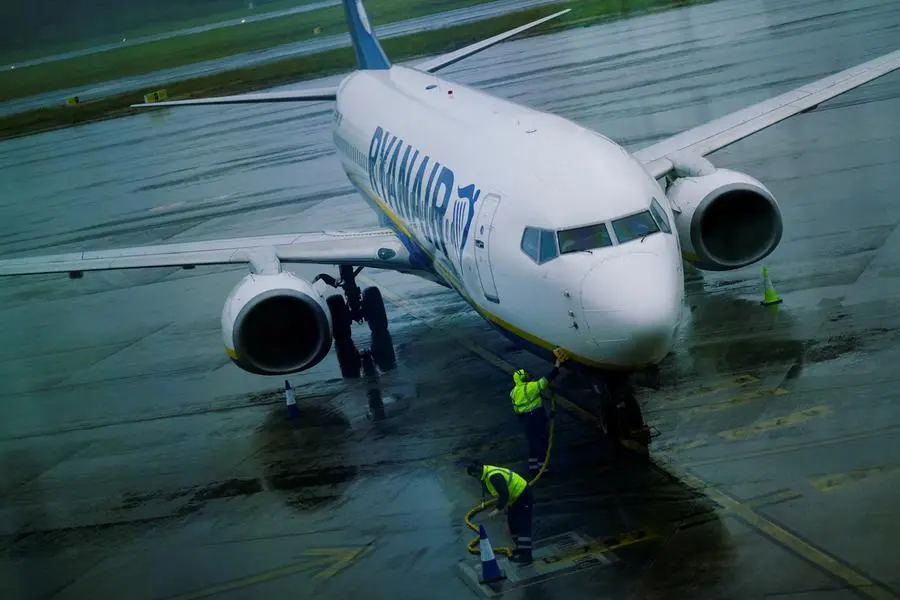PHOTO
DUBLIN - Budget airline Ryanair on Monday reported a 46% fall in after-tax profit for its April-June quarter from the prior year, missing analyst estimates, and warned that fares for its key summer months would be "materially lower" than last year.
After tax-profit for the three months to the end of June, the first quarter of Ryanair's financial year, was 360 million euros ($392 million), well below the 538 million euro profit forecast in a company poll of analysts.
Average fares per passenger fell 15% in the quarter from a year earlier as the airline was forced to engage in "more price stimulation than we had previously expected," Chief Executive Michael O'Leary said in a statement.
"While Q2 demand is strong, pricing remains softer than we expected, and we now expect Q2 fares to be materially lower than last summer (previously expected to be flat to modestly up)," O'Leary said, referring to the July-September quarter when Ryanair typically makes most of its profit.
He said it was too early to forecast profit for the full financial year, which ends on March 31.
Chief Financial Officer Neil Sorahan said he thought the weakness in fares was simply an issue of consumers being "a little bit more frugal, a bit more cautious." "I think we've just had two years of double-digit (percentage) growth, both on fares and on traffic, and so there's a bit of push back," he said in an interview.
Asked when the weakness might end, he said: "Who knows?"
The Irish airline, Europe's largest by passenger numbers, has already seen its shares fall 24% from an April 8 peak, in large part due to fare weakness.
Ryanair said it would receive 20 fewer Boeing 737 MAX aircraft than scheduled for its peak summer season, down from a backlog of 23 forecast in May.
But it said it had noted "an improvement in the quality and frequency of deliveries" from Boeing in recent months.
Sorahan said he was "reasonably confident" that Boeing would recover the backlog and deliver the final 50 aircraft in time for next summer and that deliveries of the new, larger MAX 10 aircraft would start on schedule in 2027.
($1 = 0.9184 euros)
(Reporting by Conor Humphries; Editing by Jamie Freed)




















